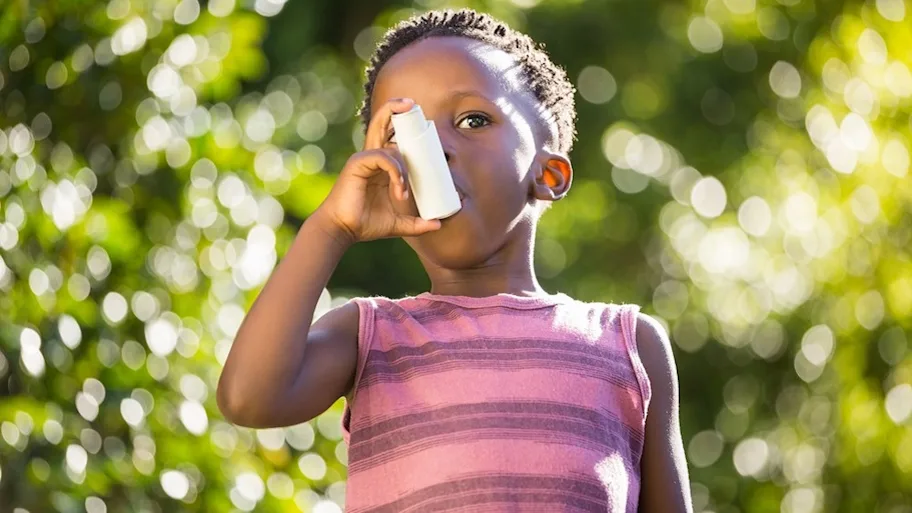
- Science news
- Featured news
- Can stress in the womb lead to mental resilience later in life?
Can stress in the womb lead to mental resilience later in life?

The findings suggest that like other animals, humans can be primed via epigenetic changes to face the environment their mother experienced during pregnancy. Image: Shutterstock.
_When a mother is exposed to intimate partner violence during pregnancy, her children are less likely to suffer depression and PTSD symptoms if they live in violent communities, than otherwis_e
— by Matthew Prior, Frontiers science writer
Maternal stress during or after pregnancy has been repeatedly associated with subsequent psychiatric problems and non-coding ‘epigenetic’ DNA changes during childhood. Animal studies, however, suggest that prenatal stress leads to behavioral changes in offspring that could be adaptive in threatful environments.
Published in Frontiers in Genetics, a new human study shows that in high-violence communities where children experience abuse of their mother both during and after pregnancy, psychiatric problems appear to be less frequent – and a different, potentially protective, pattern of epigenetic changes emerges.
The findings suggest that like other animals, humans can be primed via epigenetic changes to face the environment their mother experienced during pregnancy.
Does Prenatal Stress Shape Postnatal Resilience? – An Epigenome-Wide Study on Violence and Mental Health in Humans► Read original article► Download original article (pdf)
Assessing the effects of prenatal stress in violent communities
“In animals, under some circumstances exposure of pregnant mothers to predators leads to behavioral and molecular changes in the offspring, that are beneficial in predator-rich environments but not otherwise,” says Dr. Daniel Nätt of Linköping University, Sweden, one of the main authors of the study. “A similar relationship between prenatal and postnatal stress may help us explain why some individuals develop psychiatric problems while others seem resilient.”
Nätt and colleagues hypothesized that in high-violence communities, stress during pregnancy will have different consequences than what has been reported in studies of less violent communities.
“The participating Brazilian families of our study were exposed to high levels of community violence, such as gang violence. Exposure to violence was also high within families, between for example intimate partners. Such intimate partner violence (IPV) was relatively often maintained during pregnancies in this cohort, which is a sensitive period for both mother and child.”
To test their hypothesis, the researchers analyzed interviews and saliva samples from 120 mothers and 120 of their children.
“As well as assessing psychiatric profiles, we assessed DNA methylation in saliva cells. DNA methylation is a type of epigenetic change, which alters the way genes are expressed without modifying the genetic code. Based on previous studies, DNA methylation is believed to be involved in shaping psychiatric resilience following early life stress.”
Related: Autism is associated with zinc deficiency in early development — now a study links the two
Prenatal stress seems to interact with postnatal stress to influence resilience
Unsurprisingly, the results showed that the more mothers were exposed to IPV during pregnancy the worse they suffered depression, PTSD and anxiety symptoms. However, the way this affected the children of abused mothers differed from many other studies.
“The interviewed children showed lesser psychiatric consequences of prenatal stress than reported repeatedly from less violent populations”, says Dr Nätt. “Our results will, of course, need further validation since they are based on only one Brazilian cohort. But in this cohort, we were able to replicate other studies showing that children experiencing maternal IPV after being born have more psychiatric problems. Only when maternal IPV occurred both during and after pregnancy these psychiatric problems were less severe. Thus, the prenatal component seems to have played a role here.”
DNA methylation might mediate adaptation of the stress response in early development
“We also observed that several well-known stress genes, like the glucocorticoid receptor and its repressor protein FKBP51, which both regulate one of our most important stress hormones, cortisol, were among the most differentially methylated. Astonishingly, the way these genes were methylatedsuggested to us that prenatally stressed children had an enhanced ability to terminate stress responses.”
Altogether, these results imply that prenatal stress may be involved – via changes in DNA methylation – in shaping psychiatric resilience. Dr Nätt is, however, very clear that the findings must be scrutinized by others.
“It is important to point out that there are multiple interpretations of our results, one being that stressed mothers somehow prepare their offspring for a violent environment. I am, personally, skeptical to this interpretation. I would rather believe that violence during pregnancy leads, as many studies have shown, to suboptimal brain development.
“For instance, prenatal stress has been associated with asocial behavior and a higher risk for autism spectrum disorder. In many communities such behavioral traits lead to a more difficult life. Maybe you become bullied in school because you don’t fit in, and therefore you feel bad and develop psychiatric problems.
“In other communities, the same behavioral traits might become a benefit for you. In the violent communities that we have studied, having asocial “skills”, by for example being able to block out the emotional consequence of seeing and performing violence, might be a benefit for you. It might even make you climb the social ladder, which probably would make you feel better.
“If this is the case, our findings would provide a warning to many violent and non-violent communities alike, concludes Dr. Nätt. “Violent communities for promoting such violent behaviors, and non-violent communities for not giving enough support to individuals that fall out of the norms.”
Original article: Does Prenatal Stress Shape Postnatal Resilience? – An Epigenome-Wide Study on Violence and Mental Health in Humans
REPUBLISHING GUIDELINES: Open access and sharing research is part of Frontiers’ mission. Unless otherwise noted, you can republish articles posted in the Frontiers news blog — as long as you include a link back to the original research. Selling the articles is not allowed.






